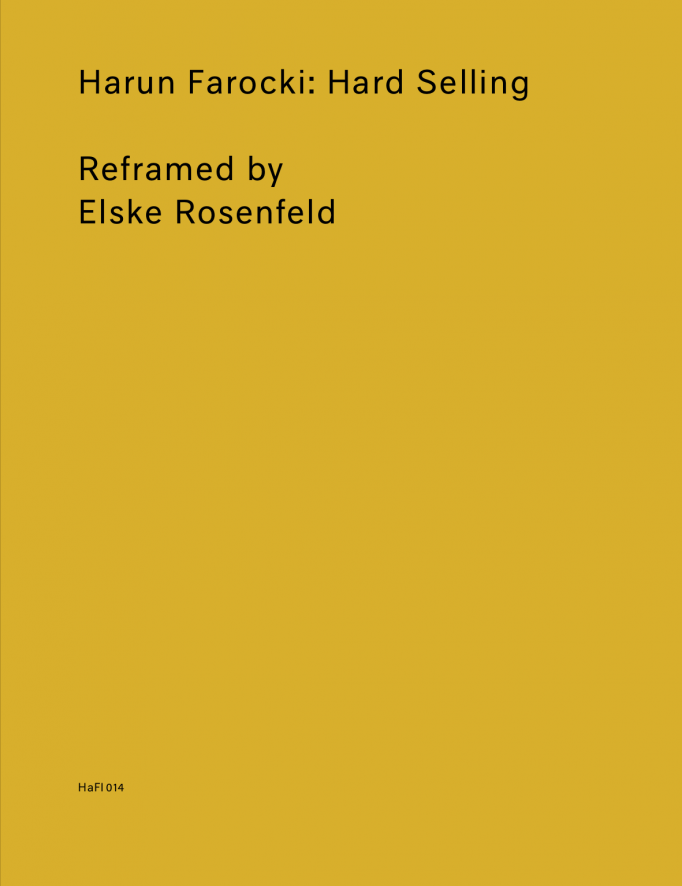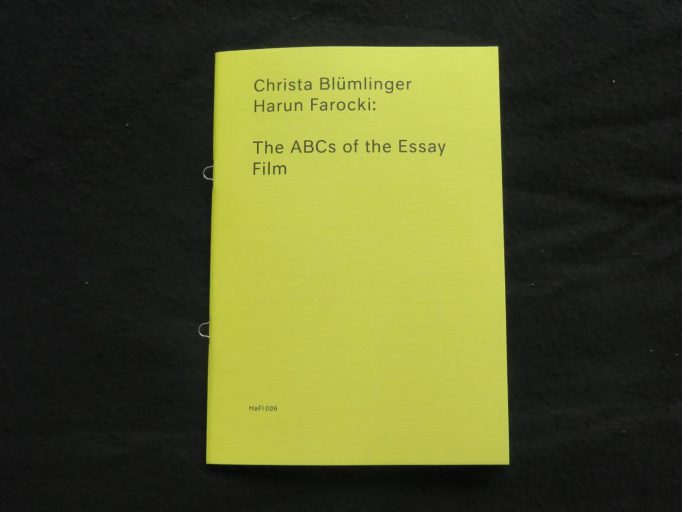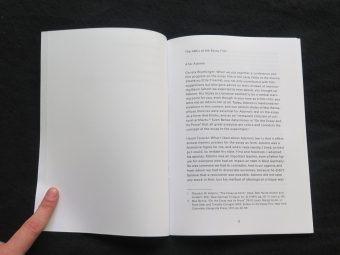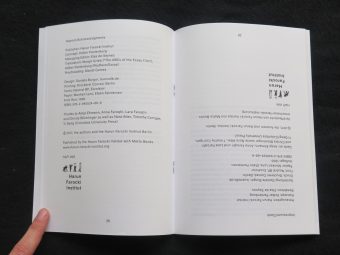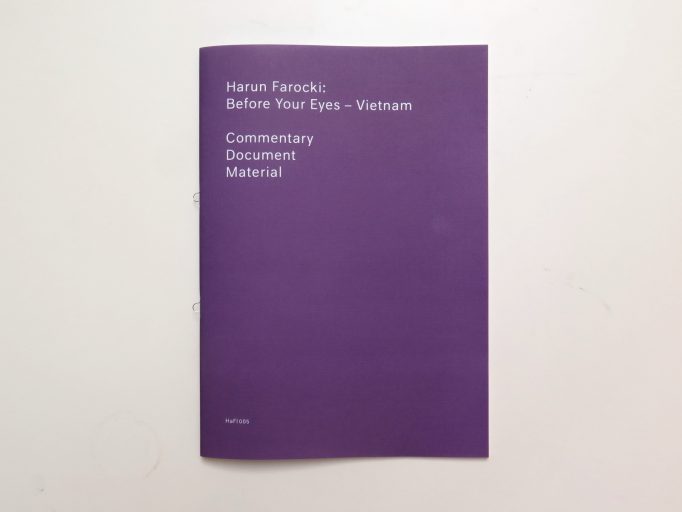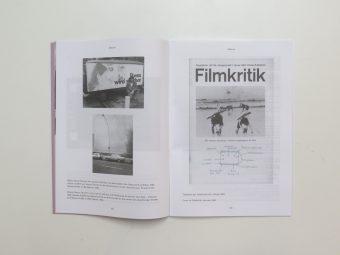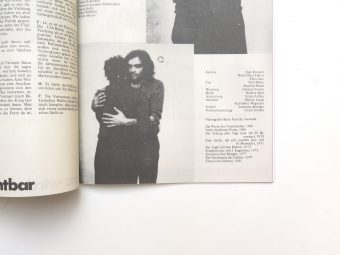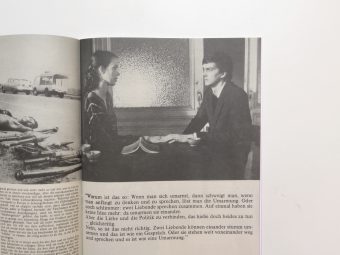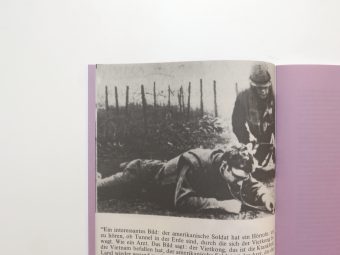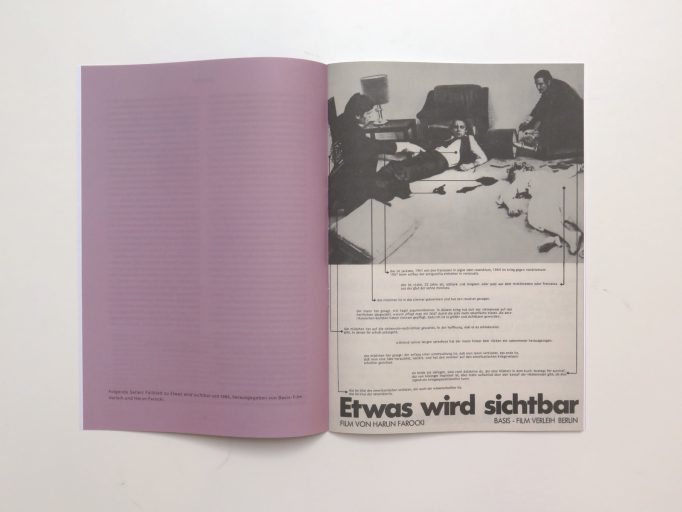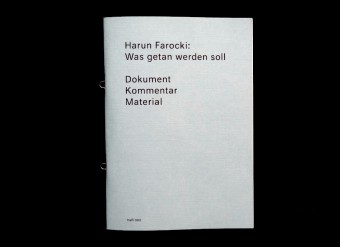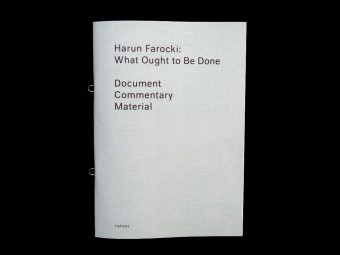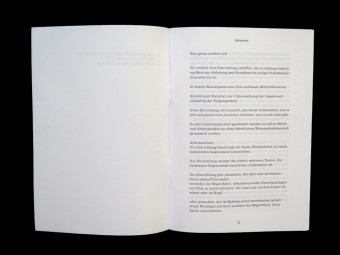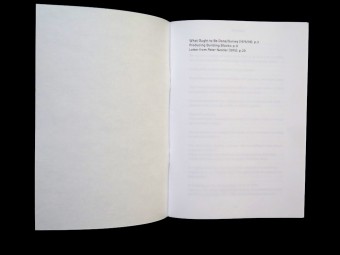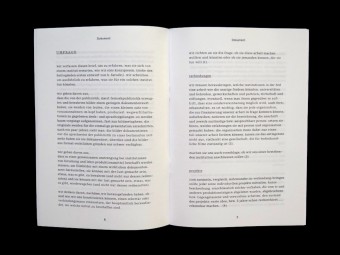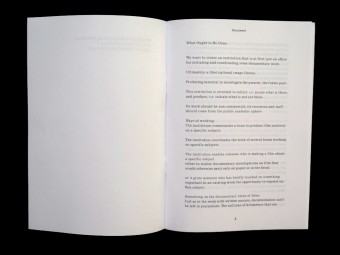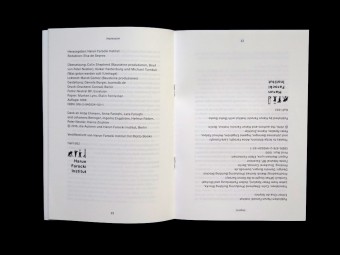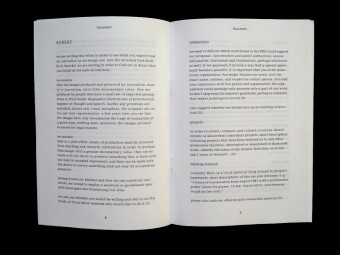HaFI 014 – Harun Farocki: Hard Selling – Reframed by Elske Rosenfeld. Harun Farocki, Elske Rosenfeld, Doreen Mende. Harun Farocki Institut; Motto Books
Posted in Motto Books on March 31st, 2021Tags: Doreen Mende, Elske Rosenfeld, Harun Farocki, Harun Farocki Institut, Motto Books
“I also don’t know the five new federal states and, if I want to film there, I have to have a leading figure. It is the profiteer, development aid worker and missionary all in one. He breaks into the accession area from the West in army strength. The film is about such a salesman.” –– Harun Farocki, 1990/91
HaFI 014 publishes a typescript and archival materials related to the television film Hard Selling (1991) by Harun Farocki. For this unfinished project, Farocki documented an Adidas sales training in East Berlin in 1990. In the period after July 1991 he accompanied a West German Adidas salesman on his trade tour through Mecklenburg-Vorpommern. Thus, Farocki explored the operational details of introducing the logic of free market in a country formerly trained in planned economy. Although the broadcast of Hard Selling was announced in the program booklet of the DFF—the successor to GDR television—for 13 November 1991, it did not take place. The TV-station was dissolved six weeks later.
The artist Elske Rosenfeld follows the film stills, fragments of conversations and announcement texts of Farocki’s Hard Selling. She mobilizes the figure of the “window” as a frame to transpose the languages and gazes at shop windows, screens and trainers into a poetic-analytical editing. In the resulting text/image essay Rosenfeld updates her ongoing archive of gaze-images. An editorial note by Doreen Mende introduces HaFI 014.
Elske Rosenfeld, born 1974 in Halle/S. (GDR), works in different media and formats. Her primary focus and material are the histories of state-socialism and its dissidences, and the revolution of 1989/90. Documents and archives are starting points for organising spaces in which these hi/stories can come to be present. Her ongoing project “A Vocabulary of Revolutionary Gestures” investigates how political events manifest and come to be archived in the bodies of their protagonists.
—
„Auch kenne ich die fünf neuen Bundesländer nicht und muss, wenn ich dort filmen will, eine Leitfigur haben. Es ist der Geschäftemacher, Entwicklungshelfer und Missionar in einem. Er bricht in Armeestärke vom Westen aus in das Beitrittsgebiet ein. Im Film geht es um einen solchen Verkäufer.“ –– Harun Farocki, 1990/91
HaFI 014 publiziert ein Typoskript sowie Archivmaterialien, die im Bezug stehen zu dem Fernsehfilm Hard Selling (1991) von Harun Farocki. Für dieses nicht zuende gebrachte Projekt filmte Farocki im Jahr 1990 eine Adidas-Verkaufsschulung in Ost-Berlin. In der Zeit nach dem Juli 1991 begleitete er einen westdeutschen Adidas-Vertreter auf seiner Handelstour durch Mecklenburg-Vorpommern. So erforschte Farocki die operativen Details der Einführung der Logik des freien Marktes in einem ehemals planwirtschaftlich organisierten Land. Obwohl die Ausstrahlung von Hard Selling im Programmheft des DFF – dem Nachfolger des Fernsehens der DDR – für den 13. November 1991 angekündigt ist, kam es nie dazu. Der Sender wurde sechs Wochen später aufgelöst.
Die Künstlerin Elske Rosenfeld folgt den Filmstills, Gesprächsfragmenten und Ankündigungstexten von Farockis Hard Selling. Die Figur des „Fensters“ (im Sinne von frame) dient ihr als Instrument, um die Sprachen und Blicke auf Schaufenster, Bildschirme und Turnschuhe poetisch-analytisch zu montieren. In ihrem Text/Bild-Essay aktualisiert Rosenfeld ihr fortlaufendes Archiv von Blick-Bildern. Eine editorische Notiz von Doreen Mende führt in HaFI 014 ein.
Elske Rosenfeld (geb. 1974, Halle/S.) forscht als Künstlerin, Autorin und Kulturarbeiterin zur Geschichte der Dissidenz in Osteuropa und zu den Ereignissen von 1989/90. Ausgehend von historischen Dokumenten und Archiven organisiert sie Räume, in denen diese Geschichte/n gegenwärtig werden können. In ihrem aktuellen künstlerischen Forschungsprojekt “A Vocabulary of Revolutionary Gestures” untersucht sie den Körper als Austragungsort und Archiv politischer Ereignisse.
Order here

